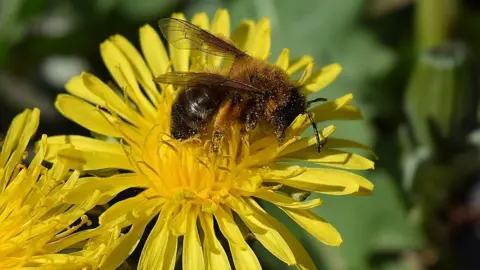Stronger protection for 'disease-free' bee status
 MANX SCENES
MANX SCENESLaws to protect the bee population have been strengthened to safeguard the Isle of Man's "disease-free" status.
The Importation of Bees Order 2024, introduced on Tuesday, updated previous legislation that had already placed a ban on bringing bees to the island.
The measures aimed to prevent the spread of harmful pests and diseases that threaten bee populations, the government said.
Chief Veterinary Officer Amy Beckett said the new controls provided greater "clarity" on products, such as used beekeeping equipment, which cannot be imported.
The Department of Environment, Food and Agriculture said the update replaced "outdated laws" and ensured "robust protections" while supporting the island's "ongoing efforts to maintain its status as a sanctuary for healthy pollinators".
In 2015, the Isle of Man was officially declared free of the Varroa mite, a harmful pest responsible for the decline of honeybee populations across the world.
The legislation prohibits the importation of bees at any stage of their life cycle, as well as unprocessed honey, pollen, and beeswax not intended for human consumption.
'Key step'
Dr Beckett said the laws "reduce the risk of inadvertently importing diseases or pests in these products".
"Maintaining this disease-free status is essential, not only for honey production but also for pollination, which is vital for local biodiversity and agricultural productivity", she said.
Environment Minister Clare Barber said, as a Unesco biosphere reserve, the island had "a responsibility to protect this vital resource, ensuring the health of our bee populations and the biodiversity they support".
The legislation, which is due to be laid before the island's parliament in February, was a "key step" in preserving the island's natural environment in line with the government commitment to sustainability outlined in the Island Plan, she added.
Why not follow BBC Isle of Man on Facebook and X? You can also send story ideas to [email protected]
